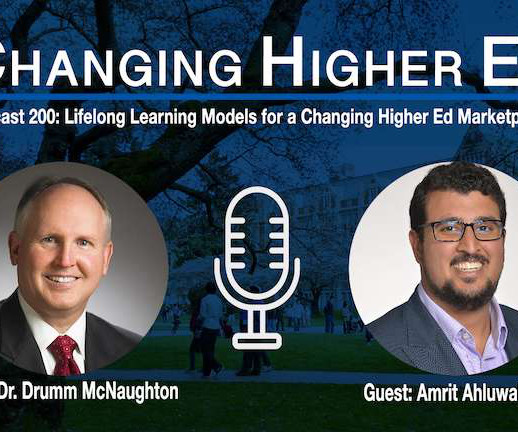Lifelong Learning Models for a Changing Higher Ed Marketplace: Changing Higher Ed Podcast 200 with Host Dr. Drumm McNaughton and Guest Amrit Ahluwalia
The Change Leader, Inc.
MARCH 26, 2024
Drumm McNaughton and Amrit Ahluwalia discuss the transformation of higher education into a key player in lifelong learning and workforce development. They address the shift in educational models to meet the needs of a rapidly changing job market, where over 60% of jobs will require new skills by 2025.












Let's personalize your content